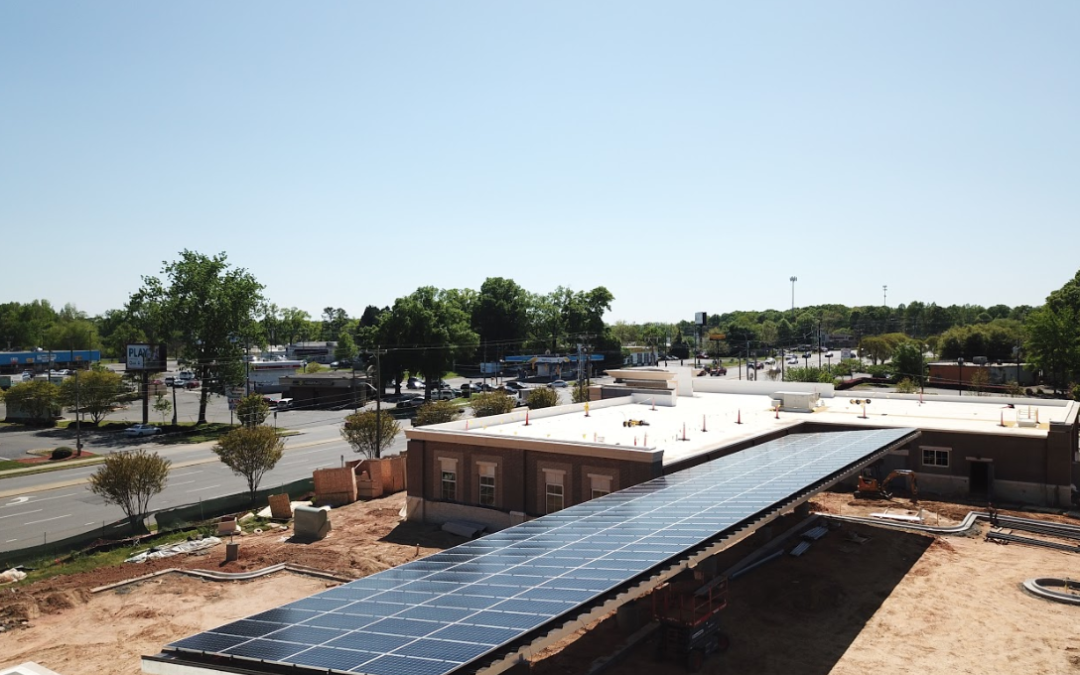
CMPD Hickory Grove
CASE STUDY: CMPD Hickory Grove

Charlotte
North Carolina

76.56 kW
System Size

Thousands
SAVED IN THE
FIRST YEAR

176 PANELS
SUNPOWER E-20-435-COM Panels
The Partner
The Charlotte Mecklenburg Police Department’s newest station – Hickory Grove – has gone solar! The station was recently completed in the summer of 2020, and features a 76.56 kW solar canopy among countless state of the art technologies. For years, the CMPD has been dedicated to protecting the Charlotte community and helping achieve the City of Charlotte’s goals.
The Vision
In 2018, Charlotte’s City Council passed the Strategic Energy Action Plan (SEAP). The plan sets the vision for Charlotte to become a national leader in sustainability. To that end, the plan has aggressive goals and targets:
- City fleet and facilities will be fueled by 100% zero-carbon sources by 2030.
- Charlotte will become a low carbon city by 2050 by reducing greenhouse gas emissions to below 2 tons of CO2 equivalent per person annually.
Reference: https://charlottenc.gov/sustainability/seap/Pages/default.aspx
All new construction projects for the City of Charlotte have sustainable technologies considered and incorporated as a part of the SEAP.
The RENU Solution
The CMPD Hickory Grove station began construction in 2018. Like all CMPD facilities, the station had a carport included in the design. Adjacent to the building, a carport allows police officers to stay dry during shift changes as well as keeping important equipment dry.
Unlike previous CMPD stations however, the Hickory Grove station has a solar system on top of their carport. The solar system is 76.56 kW, composed of 176 solar panels. The system is capable of producing over 100,000 kWh annually. This system will go a long way towards reducing the station’s carbon footprint and is a key step in the City of Charlotte achieving their Sustainability Goals.
Project Details
- The system features 176 x SunPower E20-435-COM Modules and 3 x SMA 24000 Inverters installed on QuickMount PV Racking. The overall rooftop installation took 5 days to complete while electrical installation took 10 days to complete
- This is estimated to produce 99,700 kWh/year, which will save the department thousands of dollars every year in electricity costs
The project is eligible for the Duke Energy Solar Rebate for non-profits, which will be an estimated $54,000.
